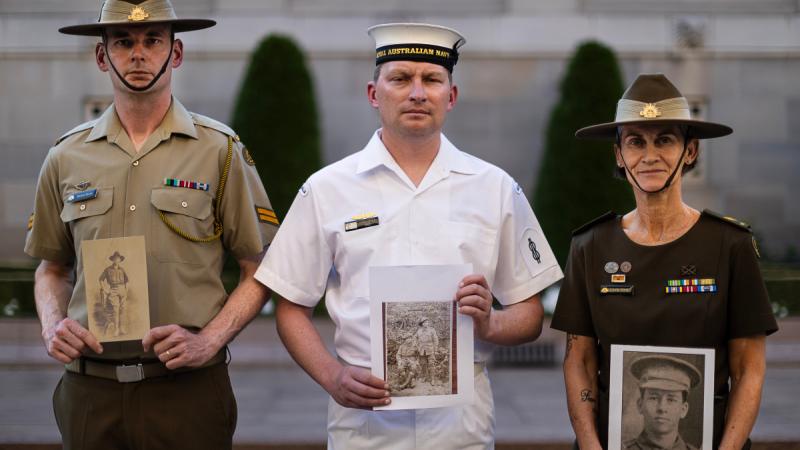“We farm sustainably because this is a business, and we don’t believe it’s right to make a profit out of polluting the earth.”
So says James Robson of Ross Hill Wines.
It’s his driving philosophy and the beginning of really good story.
The story of a family who set out to make fine wine, turn a profit and leave the land they farm in better condition than when they found it.
And guess what. That’s exactly what they are doing. And then some.
The Robson’s of Ross Hill became Australia’s first wine company (and family farm) to be registered by the federal government as a National Carbon Offset Standard carbon neutral business in 2016. Which in a nutshell, means that they officially create zero net greenhouse gas emissions.
They also make some of the country’s finest cool climate wines.

Perched at about 1020 metres above sea level, Ross Hill’s Wallace Lane Vineyard is one of the biggest, and highest in Orange, which in turn, is the highest wine region in Australia. And it’s this elevation, James explains, that does and will give their wine an edge well into the future.
“Viticulture is the canary in the coal mine when it comes to agriculture,” James says, “it’s the warning bell for all us farmers that climate change is having real impacts right now.”
He continues: “there is plenty of anecdotal evidence across our industry that global warming is bringing our picking season on earlier and earlier.”
When Mum and Dad first started growing grapes out in the late nineties, we were, on average, starting harvest in late February/early march and going right through to May.
“But in the last four years we’ve been starting early to mid February and last year were finished by the middle of March.”
This is especially problematic for viticulture because what you need, as James explains, for complex wines that are enjoyable to drink; is cool nights and warm days. “It’s the same with cherries,” he says (side note, the Robson’s are also cherry farmers!).
“So we need warm days to allow the sugars to rise – that’s our ripening – and then for temperatures to drop below 15 degrees at night so the fruit can develop those beautiful complex flavours.”
Orange experiences tourism boom
The Robson’s home-town of Orange is having a bit of a moment right now.
Like many Australian destinations, Orange is benefiting from a COVID-19 silver lining. Which is, this current boom in domestic tourism, with thousands of visitors flooding into town every week, all keen to experience the region’s renowned cool climate wines, restaurants, cafes countryside. And in the thick of it all is Ross Hill Winery, their cellar door welcoming up to 650 to 700 visitors each week alone.
It’s no wonder. The contemporary, custom-built cellar door is always staffed by one of the family or their small team, and they don’t just offer tastings but a great story too. The one you’re reading now in fact.
It also helps that the vineyard itself is in a pretty spectacular spot. High up on the mountain, surrounded by orchards, pine trees and putting on a hell of a view across the valley below.
Driving around here on this bright, fresh Summer morning, James is full of ideas, plans and enthusiasm.
To the right, he shows me where eight acres for Chardonnay and Pinot Noir are soon to be planted. A little further along, he waves at land marked out for more chardonnay/pinot noir grapes, an investment which will shore up plenty of high altitude grapes for their premium labels and a move that demonstrates how grape growers like the Robson’s are chasing altitudes to get those complex flavours.
“I’m always joking that if I could, I’d just keep buying land further and further up the mountain,” he says, “because I believe, the higher you get the better the wines we can make going forward”.

Promoting biodiversity on farm
Another corner of the 165-acre property is designated for native forest planting. It’s a patch of land with a ‘blue line stream’ running through it (ie, a waterway that can never be altered in any way).
Last century this field was an apple orchard and this one, it will be a native forrest that visitors to Ross Hill will be invited to explore, to walk through and experience for themselves.
As James says, “ultimately we want people be able to walk around the place, learn a little bit about what we do, and what farming is all about. For me at least; that is making sure the land is in a better spot when I leave it than when we got here.”
Hence their commitment to reducing greenhouse emissions and farming as sustainably as they can, and a big part of the above is their tree planting program which helps with the carbon offsets.
Another significant factor is that they operate almost entirely on solar energy. Last year Ross Hill was so energy efficient that their carbon offsets/credits only cost $1400.
“We produce 38 kilowatts of power from our solar panels,” James says, “but we’ve also changed many management practices too; from cooling systems in the winery, to reducing our tractor hours by around 40%, decreasing water use by half and minimising the transport requirements across our business.”
In terms of the actual accreditation process, James explained that because they were the first business of their kind to go through it all, the paperwork did take some time.
We were this agricultural entity in the mix with businesses like Qantas and prestigious law firms from Sydney!
“Adding to that, wine is a complicated thing – a fruit that’s turned into alcohol in bulk storage then stored and sold in bottles. Lots of moving parts”
But, he continues, “once you’re off and running it’s quite easy. There are the two days a year when you get audited, but you just get used to that. And now, we’re actually saving money year on year. It has been a huge boost to our business.”
So if being carbon neutral is so great, why aren’t more people doing it?
“I think it’s just the perception of inconvenience.” James says. “Yes there are hoops to jump through but since we started out, the process has become way easier.”

While the Robson’s went down this path of sustainability for environmental reasons, they had no idea of the commercial benefits it would deliver as well.
“We always knew that this would strike a chord with our customers but have been completely blown away with how the story has connected with and excited customers, old and new.
Ross Hill does enjoy incredible customer loyalty, but just how much of this stems from the fact that they make good wine and how much is because of their sustainability and green factor? “I think it’s a combination of both,” James says.
“But certainly when it comes to younger customers who don’t have any connection with our history in the region or any of that, they come to us because we are carbon neutral and they stay because of the quality of our wine.”












